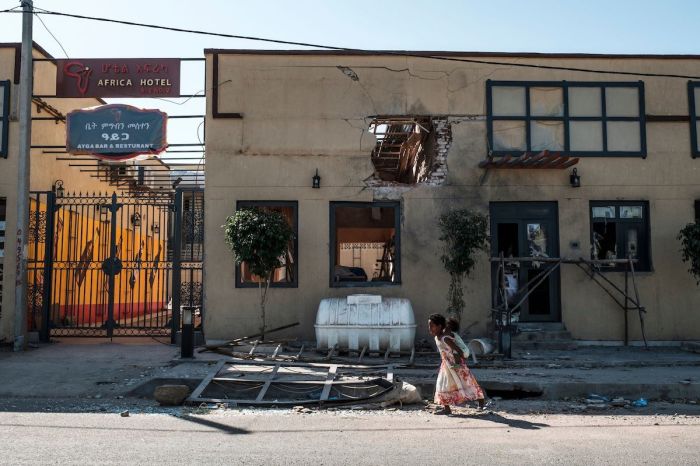Christian group calls for probe of possible ‘crimes against humanity’ in Ethiopian military offensive

A Christian human rights group is concerned about a recently launched Ethiopian military offensive that is suspected of committing war crimes against civilians.
Earlier this month, Ethiopian Prime Minister Abiy Ahmed ordered the military to attack forces tied to the Tigray Peoples’ Liberation Front in response to an attack on a base.
Mervyn Thomas, founder of CSW, a Christian nonprofit that advocates for religious freedom around the world, said there were “persistent reports of violations which may amount to atrocity crimes” that may “necessitate an immediate international response.”
Thomas was also concerned about the presence of refugees and soldiers in the region from neighboring Eritrea which gained independence from Ethiopia in 1993 and is located east of the region.
“Pressure must be exerted to ensure an immediate ceasefire, the withdrawal of Eritrean troops, the opening of humanitarian corridors to assist refugees and civilians, and the immediate, independent verification and investigation of possible war crimes and crimes against humanity,” he stated.
Thomas also called on Ethiopia to “ensure protection for refugees in accordance with international law” and also “to fulfil its obligations under the International Covenant on Civil and Political Rights (ICCPR) and the African Charter on Human and People’s Rights, as well as under the Rome Statute, which describes the targeting of civilians, including through deliberate starvation.”
“We urge Prime Minister Abiy Ahmed to take immediate steps to de-escalate the conflict, ensuring full respect for the right to life and the fundamental freedoms of all Ethiopian citizens, regardless of ethnicity,” he added.
Last week, Babar Baloch of the United Nations Refugee Agency told the press at a briefing in Palais des Nations in Geneva, Switzerland, that over 33,000 Tigray residents had fled to the Sudan, located west of the region, as a result of the offensive.
“Refugees have told us they were going about their daily lives when fighting erupted suddenly. We have met teachers, nurses, office workers, farmers and students who were completely caught by surprise,” explained Baloch.
“Many fled with nothing except what they had with them and then had to walk for hours and cross a river to seek safety in Sudan.”
Baloch went on to note that there were also approximately 100,000 Eritrean refugees located in four camps in the region and that they were “very worried” about their safety.
“Eritrean refugees in Tigray were completely reliant on assistance, including food and water, before the conflict erupted, and there are major concerns that ongoing hostilities will drastically affect services in the camps,” continued Baloch.
“Rations were provided until the end of November, so it is increasingly critical for humanitarian workers to have access and for additional food to be distributed before refugees run out.”





























